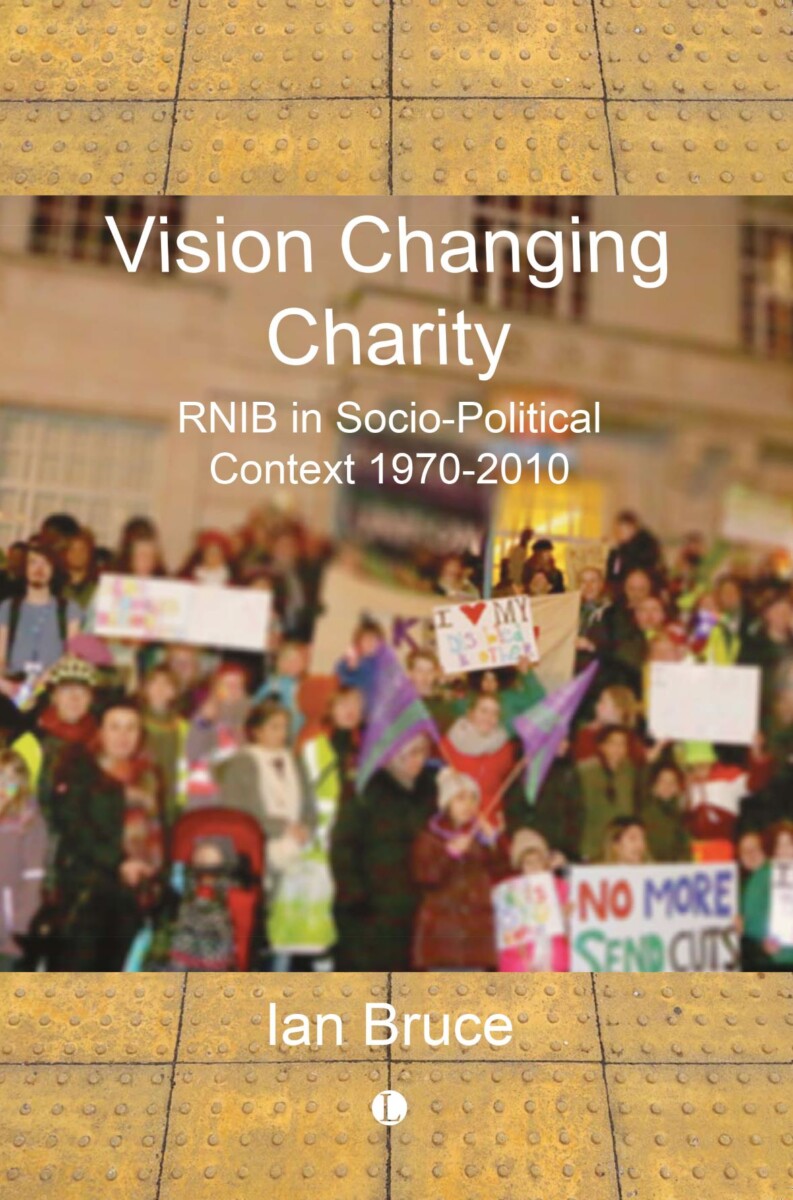Vision Changing Charity: RNIB in Socio-Political Context, 1970-2010
The late twentieth century saw charities grow from timid service deliverers into major providers with campaigning teeth. What caused this? How did they gain confidence and strength?
In this fascinating history, examined through the eyes of RNIB from 1970 to 2010, Ian Bruce examines the internal drivers and the external socio-political environment that allowed and encouraged this explosion.
Bruce’s experience of leading a charity at the forefront of this change, and his participation in the wider charity sector for fifty years as both activist and academic, gives him an unsurpassed understanding of what happened and why. His first-hand knowledge will speak to charity workers as well as academics, covering themes such as the rise of beneficiary power against patronising providers; the change from welfare to rights; the shift from the medical to the social model of disability; and the adoption of social welfare and business professionalisms such as Strategic Planning and Charity Marketing.
Today’s charities have much to learn from the successes and mistakes of this dynamic period.
Ian Bruce told UK Fundraising:
“I think this book will interest today’s charity people showing how functions such as fundraising, marketing, PR, HR, finance and governance all fit together to get successful outcomes. It is laced through with fundraising examples including how they set up a multi-million lottery scheme. Interestingly it was not set up at the centre but from scaling up a process developed by a local fundraiser in Yorkshire. All this took place in the past but the late twentieth century saw charities grow from timid service deliverers into major providers with campaigning teeth and fundraising competence.”
About Ian Bruce
Ian Bruce, CBE, moved from Unilever into charities and later founded the Centre for Charity Effectiveness in City, University of London’s Bayes Business School. His research on visual impairment, charity leadership and marketing are widely cited in the academic literature.
While he was CEO (1983-2003), RNIB had over 3,000 staff on 56 sites, with schools, colleges, libraries, hotels, residential homes, factories and a campaigning HQ. He was previously CEO of Volunteering England and Assistant CEO of a London borough and Age Concern England.
- Professor Ian Bruce marks 25 years of Charity Talks (20 February 2018)
- Ian Bruce award CBE in Queen’s Birthday Honours List (14 June 2004)
- Communicating Causes; Strategic Public Relations for the Nonprofit Sector



